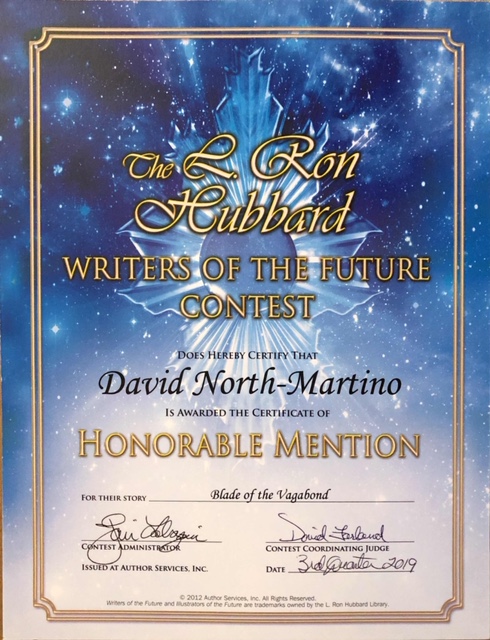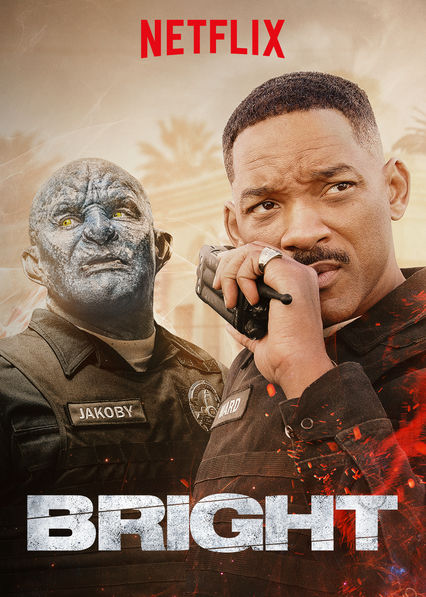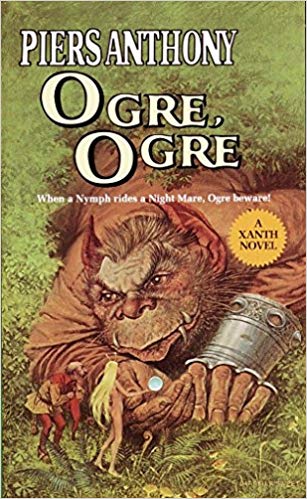In part 1, I examined the inspiration that led to writing Blade of the Vagabond (you can read that here). In Part 2, we’ll continue as I turn BOTV into a novelette and send it out to the L. Ron Hubbard Writers of the Future contest.
Originally, Blade of the Vagabond had a subtitle. The first 20,000-word version was called Blade of the Vagabond: Heaven, Earth, and Woman. The subtitle is a play on a Confucian concept of Heaven, Earth, and Man where, in very simplistic terms, man acts as the harmonizing force between the spiritual and material realms or perhaps between the opposites of Yin and Yang. The place in-between where truth resides. That’s close enough for a laymen’s understanding, but I’m sure I’ll get some criticism for it. If you have a more succinct explanation, feel free to post in the comments. I welcome your thoughts.

Anyway, I changed Man to Woman in the subtitle as my main character is female.
I was introduced to the term through my martial arts practice and have been fascinated ever since. The concept became the central focus of the story.
Once I had finished the first draft, I put the story away, awaiting a viable market. As I mentioned in Part 1, the open submission period ended before I completed the first draft. Luckily, soon after, the original publisher reopened for submissions.
I edited my draft and then gave it to Patty for a proofread. After reading the initial draft, Patty dubbed this story her favorite of any I had written. After a polish edit, I felt satisfied enough to send it and await a response.
Feeling this story represented my best work, I was convinced it had a good chance of selling. I sent it to them with high hopes. What happened next would change the course of how I submitted the story.
The editorial team from the publishing house contacted me and their response surprised me. Originally, the story had a prologue. In the opening, we see one villain, a henchman to the Big Bad, not the protagonist, as he prepares for infiltration and assassination. It was a long opening filled with action and intrigue. The idea was to pull the reader into the action before we reached the first chapter and met the protagonist. I felt this high action opening increased the danger and tension, setting up the story for the final confrontation.
The editors, however, had mistaken my prologue (which was clearly labeled) with the first chapter and the villain’s henchman with my main protagonist. They felt too separated from the “protagonist” as if watching a movie and weren’t fully engaged by the writing. I found this odd since my story’s subtitle was Heaven, Earth, and Woman, how could they mistake my male antagonist for my female protagonist?
Here’s what they wrote:
I appreciated how this began in media res, watching someone on a mission , but there was a lot of action with no motivation. Movies often open this way and perhaps it works better in cinema because camera angles and music can create emotional sensations in the audience, but with prose our connection is a little more difficult to forge. I spend too much of this story following the protagonist without sharing the feelings, which hamstrings our ability to anticipate or experience true tension. This is subjective and another editorial team may feel differently, so I wish you the best of luck placing it elsewhere.
Pro Tip: Editors are overworked and if they’re confused by your submission, they’ll reject you. They won’t give you the benefit of the doubt. They don’t have time.
Yet, there’s more to learn. Many wannabe writers base their stories on films and TV shows and use a cinematic technique throughout the whole book. Because of this, the cinematic technique may brand you as an amateur. It’s unfortunate but understandable.
Also, there’s an important reason I didn’t share the antagonist’s feelings: he doesn’t have any. Using a potion and mind-altering meditative techniques, the antagonist blots out his feelings.
What I thought was obvious wasn’t. Would every editor feel the same? There was no way to know. Removing the Prologue didn’t hurt the story. With a few tweaks, I annexed it. Cutting the story lowered the word count making it more marketable.
Pro Tip: Novellas and novelettes are a harder sell for newer and less established writers.
I also wondered if readers who liked the prologue would enjoy the main story and vice versa. Both sections had a different tone.
Next, I sent a modified version to a top pro magazine. The response I received was encouraging. This editor enjoyed the writing. He wrote, “some really good writing here,” personalizing the rejection letter.
Pro Tip: Getting compliments from professional editors at top magazines is a very good sign. It may mean you’re writing at a professional level or are close.
Here’s the thing: did I think a top magazine would buy a 16,000-word novella from a virtual unknown? No, but it was worth a try and gave me valuable feedback. You can’t win if you don’t play.
Encouraged by the pro editor’s response, I sent the story to L. Ron Hubbard’s Writers of the Future Contest. The 16,000-word version didn’t win.
Then I heard about another contest at a very large and popular SF and Fantasy Independent press. The problem? Their upper word count was 8,000 words. If I wanted to send them Blade of the Vagabond, I’d have to cut the story in half. Could I trim the story to its essence, reducing it to the low end of novelette form, while keeping enough plot for the story to make sense? That was a good question. Some poignant moments and a subplot or two would need to be removed, but I believed it could be done. I set out on a mission.
I whittled it down to 9,000 words without losing the main plot, but I had to do without some poignant moments and some of what made the first two versions of the story unique.
Now to shave the manuscript to 8,000 words, I had to lose a connector scene. The story still worked well enough, but I wasn’t happy with the transition between one chapter. If I wanted to submit to the contest, I’d have to live with it.
Once sent, I returned to my novel (working title: The Tower) already in progress.
When the contest ended, and they announced winners, it was time to send Blade of the Vagabond somewhere else.

L. Ron Hubbard Presents Writers of the Future Vol. 35*
I received an email notification from the director of Writers of the Future that there was still time to submit a story for the 3rd quarter. Could I send a different version of the same story to the contest? I’d have to find out. If allowed, I figured it was worth a shot.
Next time I’ll tell you what happened, how I edited my manuscript into shape, and what I learned in the process. I’ll see you then.
*As an Amazon Associate I earn from qualifying purchases.









